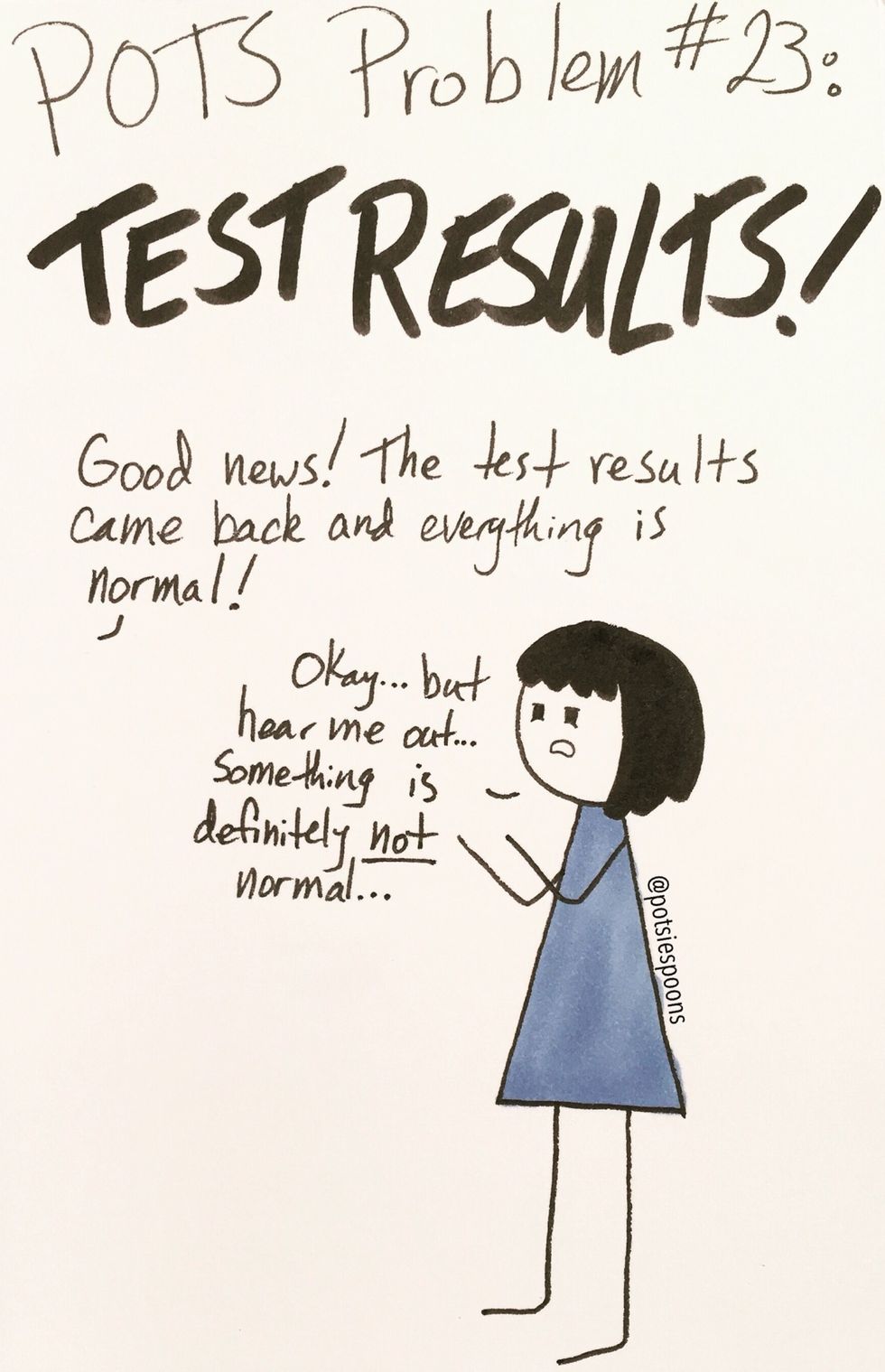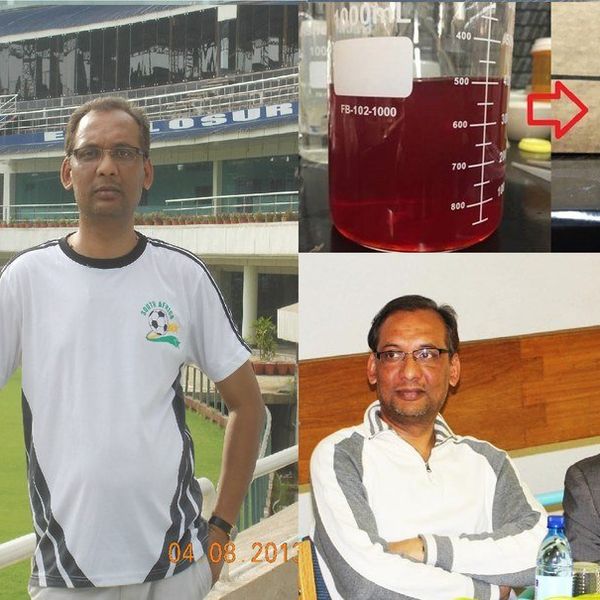It's October! Happy dysautonomia awareness month! Except, problem is, unless you have a form of dysautonomia or are in the medical profession, you probably have no idea what dysautonomia is.
So it looks like I'm doing my job spreading awareness!
Dysautonomia is an umbrella term that includes any chronic illness that involves dysfunction of the autonomic nervous system (more on the autonomic nervous system later). One of the most common forms of Dysautonomia is POTS.
What does POTS stand for?
Postural Orthostatic Tachycardia Syndrome. Essentially, when you go from laying down to standing up your heart rate goes crazy. This is how it is diagnosed (an increase in BPM of 30 or more between the supine and upright position.) But the syndrome is far more than just getting a little dizzy upon standing, it also involves dysfunction of the autonomic nervous system.
What is the Autonomic Nervous System?
Simply, it controls things in your body that are automatic. Heart rate, blood pressure regulation, digestion, etc. It's split into two parts, sympathetic and parasympathetic. The sympathetic side is "fight or flight" while the parasympathetic is "rest and digest". When you have POTS the two sides are out of whack. For example, gastroparesis (another form of dysautonomia where your digestive system works really slowly or barely at all) would be caused by the parasympathetic nervous system not working properly (the "digest" of "rest and digest").
Who Gets It?
POTS mainly effects post-pubescent to young adult women. It can affect men, but for every 9 females that get POTS there's one male, so it's much less common. POTS is also much more common among people with Northern European ancestry. 1/100 teens develop POTS.
What Causes It?
POTS is genetic, not viral, but it is usually triggered by a virus or other physically traumatic event such as a concussion, childbirth, or chemotherapy. Mine was triggered by a particularly bad cold I got from a friend.
What are the Symptoms?
Symptoms include but are not limited to, fatigue, heart palpitations, headaches, digestive problems, dizziness, fainting, tremors, and anxiety. They vary in type and intensity from person to person. Some POTS patients just faint all the time, some have really bad stomach problems, some mainly have headaches, some have a mix of everything.
What's the quality of life of POTS patients?
It varies greatly. 1/4 POTS patients are so disabled they can't go to work or school. Some POTS patients may just get dizzy from time to time and that's it. 5 years post-diagnosis of teen patients, 86% of POTS patients improve at least a little. Nearly 20% fully recover by this time. However, it should be noted that average time from the start of symptoms to diagnosis is four years. Many are misdiagnosed as having "chronic fatigue syndrome," a catch-all term doctors use meaning "we don't know what's wrong with you, but we know one of the symptoms is fatigue, so we're just gonna pop this label on you for now instead of admitting we don't know what's wrong."
Geez, four years!?
Yup. And that four-year "wait time" is why I'm writing this article.
For a moment, imagine out of the blue you became sick. You are so tired you could barely stay awake for more than eight hours at a time, passing out a couple times a week. You have daily headaches, or maybe daily intestinal problems, maybe both. You're missing 50% of your classes because you're too sick to go. And you stay that way for four years, not knowing what's wrong with you.
Being misdiagnosed by doctor after doctor, being told you're faking it, it's just an anxiety disorder, given random antibiotics in case it's just a bad post-cold infection or something, being told something vague like that you have "chronic fatigue syndrome" that essentially doesn't explain or diagnose anything.
Then finally after four years, you're diagnosed by a nurse who simply lays you on a table, takes your blood pressure and heart rate, stands you up, takes them again (in fancy terms, takes your orthostatic vital signs), and confirms its POTS.
Imagine the frustration and anger you would feel.
Imagine looking back on all those years thinking that if you had just been diagnosed earlier you could've gone to the Mayo clinic and met with a POTS doctor who could've helped you, not cured you, but at least alleviated your symptoms a bit.
This is what a large amount of POTS patients have to go through.
Anyone who knows how to take a pulse can figure out if someone has POTS, the diagnosis isn't rocket science. And yet thousands and thousands of young adults have to go through four years of the unknown, of fear, of isolation, of pain, just because of a lack of awareness.
I was one of the lucky ones, in 2010 I was diagnosed about two months from when the symptoms first set in. Every POTS diagnosis should be that quick, and it could be that way if people were just aware.
Statistics from dysautonomiainternational.com
Special thanks to Potsie Spoons and Trine Comics for letting me use their art in this article.





















